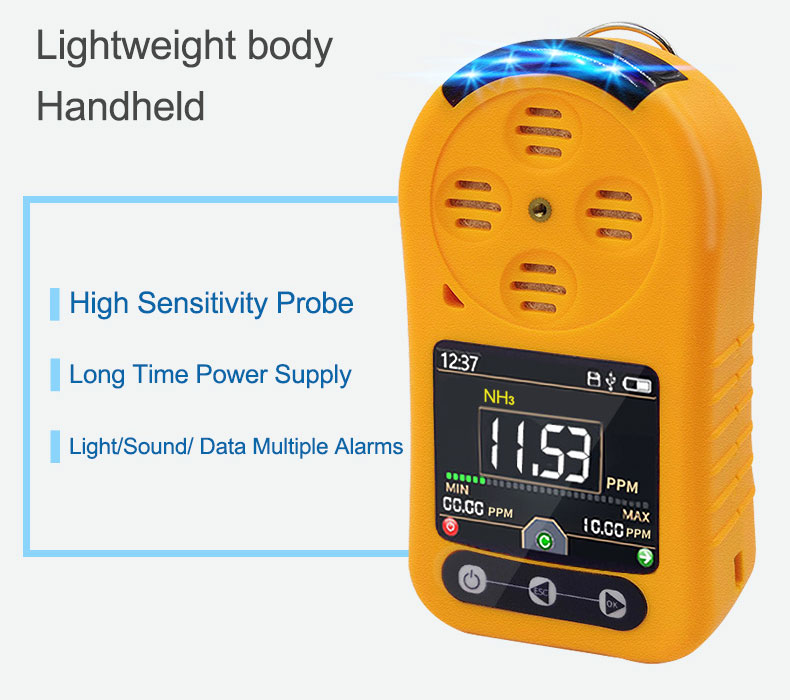monoxide detector
It’s important to have a monoxide detector in your home Carbon monoxide is a silent killer and once it’s discovered it’s too late. Carbon monoxide (CO) is a colorless, odorless gas produced by combustion processes. It is highly toxic and dangerous at levels as low as 50 parts per million (ppm). In this article, we will explore the importance of carbon monoxide detectors and the dangers of carbon monoxide in the home.

Carbon monoxide is produced by any fuel-burning source, including gas ranges, furnaces, portable heaters, and even vehicles. Inhaling CO leads to headaches, dizziness, nausea, and can result in unconsciousness or death. The problem with carbon monoxide is that you often don’t realize you’re being exposed to it until it’s too late.
Wall Mounted CO Gas Detector-Fixed Miniature Carbon Monoxide Sensor
That’s why it’s so important to have a monoxide detector in your home. They are designed to alert you when carbon monoxide levels reach a dangerous level. They are simple to install and can be plugged into a wall outlet or mounted on the ceiling. Monoxide detectors are also relatively inexpensive and can be purchased at most home improvement stores.
There are two types of monoxide detectors: battery-operated and hardwired. Battery-operated detectors are simple to install and can be used anywhere in your home. Hardwired detectors are more expensive but offer a more robust and permanent solution. If you have an existing home security system, consider adding a monoxide detector to your security monitoring.

When purchasing a carbon monoxide detector, look for one that is certified by a safety agency such as Underwriters Laboratories (UL). These certifications ensure that the detector meets certain safety standards and will work correctly when needed. Some detectors also come with additional features, such as digital displays or voice alerts.
Now that you understand the importance of having a monoxide detector in your home, it’s essential to know the signs of carbon monoxide poisoning. The most common symptoms include headaches, nausea, vomiting, dizziness, and shortness of breath. If you experience any of these symptoms and suspect a carbon monoxide leak, get everyone out of the house immediately and call 911.
In addition to having a monoxide detector, it’s important to have your fuel-burning appliances, such as your furnace and gas range, inspected annually by a licensed technician. Regular maintenance can help prevent leaks and ensure your appliances are functioning correctly.
In conclusion, a monoxide detector is a crucial tool for ensuring the safety of your family. Carbon monoxide is a silent killer that can go undetected until it’s too late. By installing a monoxide detector in your home, you can ensure that you and your loved ones are protected from this dangerous gas. Remember to purchase a detector certified by a safety agency, and have your fuel-burning appliances inspected regularly to prevent leaks and ensure their proper operation. Stay safe, and stay informed!